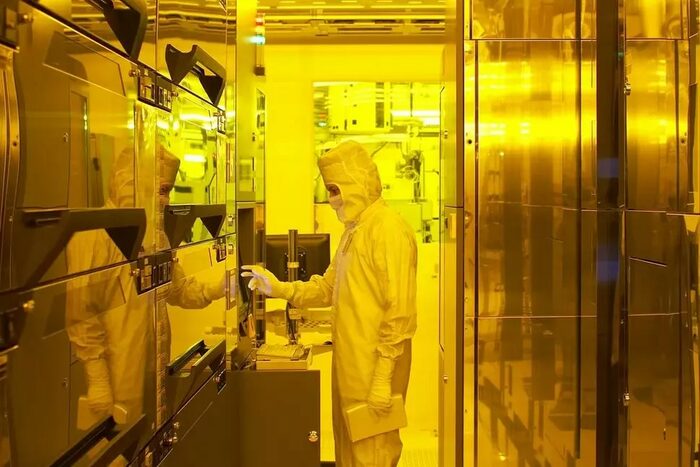|
Landeshauptstadt Dresden - www.dresden.de https://www.dresden.de/en/business/tomorrow-s-home/news/2024/007-silsax-funding.php 24.06.2024 16:17:58 Uhr 22.04.2025 15:43:08 Uhr |
|
1.8 billion euros for the semiconductor industry in and around Dresden
"Silicon Saxony" is one of the largest clusters for IT and microelectronics in Europe - with Dresden as its center and driving force. Some of the most modern semiconductor factories in the world are located here and are in lively exchange with science and research. Now the innovation location is receiving a new boost: nine selected IPCEI projects are set to decisively advance the European microelectronics and communications technology industry. The total project volume, including funding, amounts to 1.79 billion euros.
Nine IPCEI projects have recently been launched in "Silicon Saxony" to achieve new milestones in the production of energy-efficient chips and state-of-the-art sensors. Companies such as GlobalFoundries, Bosch and Infineon are researching and developing at the Dresden site. GlobalFoundries, for example, wants to accelerate the path from the idea to the finished chip in its project. To this end, a new design environment is to be developed in order to be able to offer customized chip designs more quickly. Areas of application include Industry 4.0 applications, the energy industry, autonomous electric driving and medical technology. In its project, chip specialist NXP Semiconductors is focusing in particular on high-performance radar sensors and microprocessors for largely local data processing in autonomous driving. Ferroelectric Memory, a young spin-off from TU Dresden, is researching and developing innovative memory chip concepts based on a new class of memory cells.
GlobalFoundries, for example, wants to accelerate the path from idea to finished chip in its project. To this end, a new design environment is to be developed in order to be able to offer customized chip designs more quickly. Areas of application include Industry 4.0 applications, the energy industry, autonomous electric driving and medical technology. In its project, chip specialist NXP Semiconductors is focusing in particular on high-performance radar sensors and microprocessors for largely local data processing in autonomous driving. Ferroelectric Memory, a young spin-off from TU Dresden, is researching and developing innovative memory chip concepts based on a new class of memory cells.
"Saxony's semiconductor forges are at the forefront of European innovators," says Saxony's Minister of Economic Affairs Martin Dulig. Whether autonomous driving, intelligent medical technology, energy-efficient control electronics or artificial intelligence: with the support of the federal and state governments, groundbreaking innovations will be developed in and around Dresden in the future, says Dulig. The projects also show "how closely networked the companies active at the location are and how they are working together on a digital future." Europe's technological independence from Asia and the USA is the goal, according to Dulig.
IPCEI ("Important Project of Common European Interest") are government-funded projects designed to strengthen Europe as an industrial and business location. They make an important contribution to growth, employment and competitiveness. The total project volume, including funding, amounts to 1.79 billion euros. The funding, totaling a good 795 million euros, is being provided 70 percent by the federal government and 30 percent by the Free State of Saxony. The Europe-wide coordinated projects will run until 2027, in some cases until 2029.







